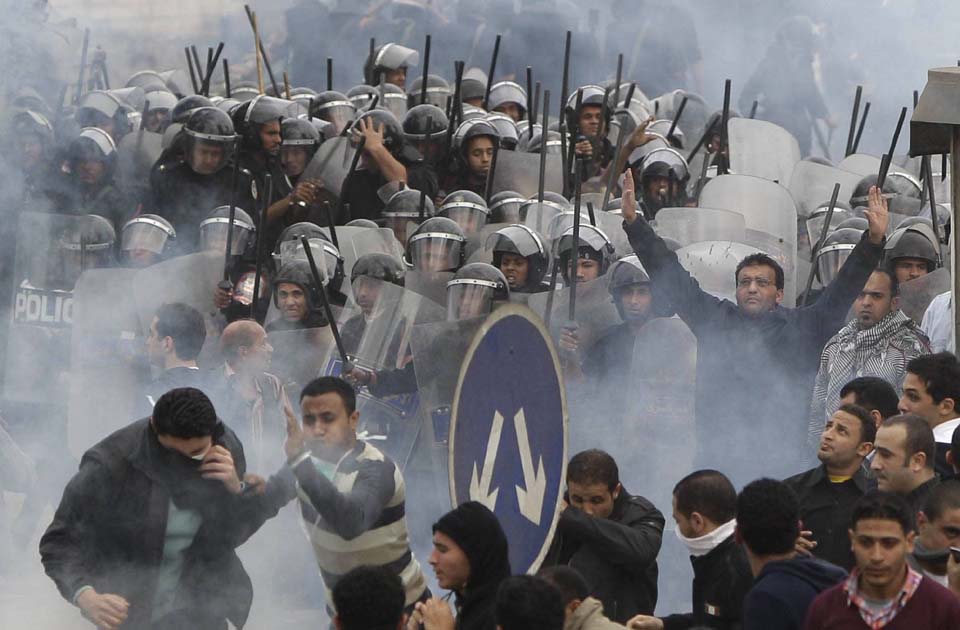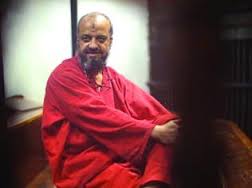
One of the only Arab leaders to explicitly back Damascus is Abdel Fattah al-Sisi of Egypt who declared more than once his support to Bashar al-Assad and his army.
Last November, Abdel Fattah al-Sisi admitted that Cairo’s priority “is to support national armies, for example in Libya,” as he told Portuguese state television. “The same with Syria and Iraq.” The host then pressed Sisi over whether he meant the Syrian regime. “Yes,” Sisi replied plainly.
However, this is the first time that Egypt, a longtime U.S. ally, openly acknowledged that it sides with the Syrian government,” said Oren Kessler in his Foreign Affairs magazine report, titled: “Egypt Picks Sides in the Syrian War: How Sisi learned to love Assad.”
Oren Kessler said, “Cairo is coordinating with the Damascus-Moscow alliance on such an operation underscores one of the Middle East’s worst-kept secrets: Cairo supports the Syrian regime of Bashar al-Assad.”
He added, “Al- Assad’s regime is not only allied with U.S. adversaries Iran and Russia but is also loathed across much of the Arab world for its scorched-earth attacks and the refugee crisis that its civil war has spawned.”
It is worth to mention that al- Sisi’s sympathy with his Syrian counterpart has been visible over years.
In 2013, when al-Sisi led a military coup against Egypt’s first democratically elected President Mohamed Morsi, Egypt and Syria agreed to revive diplomatic ties.
However, al-Sisi of Egypt has followed a “wait-and-see approach”, biding its time to see who would emerge victorious in Syria before coming out strongly for or against one side.
For example, when al-Assad seemed on the defensive amid Islamic State (ISIS) advances in summer 2015, Sisi reportedly told visiting diplomats to begin preparations for his downfall.
However, when the tide turned in favor of al-Assad’s regime and his government began to appear victorious more than at any time since 2011 as a result of Russia’s intervention in Syria in September 2015, “Al-Sisi took notice, and by late last year, the previously unsayable—that Syria is better off with Assad than without him—ceased to be so, “said Oren Kessler.
Last October, shortly before the interview with the Portuguese press, Egypt—a rotating member of the UN Security Council—stood in favor of Moscow in opposing a French-sponsored draft resolution calling for an immediate end to air strikes in Aleppo, where the Syrian regime and Russia have conducted a punishing campaign against the city.
In the same day, Egypt joined Russia (and China and Venezuela) in supporting an amended draft that removed all reference to the city.
That same month, the Egyptian Syrian relations have witnessed an “advantage stage” on the joint-military operations as described by Syrian army spokesman as state media also reported that Damascus had hosted bilateral meetings with high-level Egyptian officials, including the intelligence chief.
In addition, Bashar al-Assad of Syria has stressed that the Egyptian-Syrian relations is improving, adding that the relations have been limited only to military cooperation so far in an interview with al-Watan, a Syrian newspaper, last December.
He also welcomed Abdel Fattah al-Sisi’s statements on supporting the national Syrian army saying, “We hope that al-Sisi’s statements would be reflected on improving the relations between both countries.”
As a result, Egypt’s stance in the UN has angered Egypt’s major Gulf backer which condemned Egypt’s vote and described it as a “painful” stance.
After the voting, the Saudi ambassador to the UN, Abduallah al-Mouallimi said, “It was painful that the Senegalese and Malaysian stance was closer to the Arab’s consensus than the Egyptian delegation.”
He also said that he feels pity for these countries that voted for the Russian resolution, stressing that his country will continue backing the Syrian people by all means.
Two days following the voting, Saudi state-owned oil company Aramco announced halting oil product supply to Egypt. The sudden halt, triggered a scornful media campaign against Saudi Arabia, as it was seen as a political decision.
On the other side, Saudi journalists and media men criticized the Egyptian regime and blamed the kingdom or its financial generosity to al-Sisi regime.
But the question raised “Why Cairo cozying up to Assad at the risk of damaging its own regional prestige, and of irking its financial backers, when its own economy is in profound crisis?” asked Oren Kessler.
“First, Cairo’s threat perception differs from that of its Arab allies. Although Saudi Arabia views Assad’s patron, Iran, as the foremost threat to its security and interests, Egypt reserves that place for Sunni Islamists such as the Muslim Brotherhood and ISIS,” said Kessler.
Since the military coup in 2013, the Egyptian authorities launched massive crackdown against the Muslim Brotherhood members and “once in power he (al-Sisi) proceeded to imprison tens of thousands of the group’s members,” said Kessler. As a result, Sinai Province (ISIS-affiliated group) killed hundreds of Egyptian servicemen in an insurgency with no end in sight.
It seems that when al-Sisi looks at the Syrian conflict, it “is reminded of the fragility of his own rule, a decades-old regime—the Assad’s have ruled Syria for four decades, and army officers in Egypt have for most of the last seven—is pitted against rebels that he dubs extremists, “according to Kessler.
Although untangling the affiliations of Syria’s many opposition parties is tricky, at least one such grouping, the Istanbul-based Syrian National Council, is indeed, by most accounts, Brotherhood-dominated. As for ISIS, it has distinguished itself as one of the most brutal and effective fighting forces arrayed against Assad.
Second, Kessler sees both Cairo and Damascus are “in lockstep over their antipathy for the government of Turkish President Recep Tayyip Erdogan, which is itself rooted in political Islam.”
Erdogan has been against al- Sisi’s regime since the military coup in 2013, as Turkey is hosting Muslim Brotherhood leaders and beaming out Arabic-language TV stations that rail against the Egyptian leader’s “illegitimacy.”
In addition, the Turkish president is even fond of flashing the Brotherhood’s signature four-finger salute. “
Along with the Saudis, Ankara has similarly been the leading international opponent of the Assad’s regime, “providing logistical support to sundry opposition groups, and allowing them—as well as ISIS—to traverse its border with Syria largely unhindered.”
In the end, Egypt’s closer ties with Assad are part of Egypt’s rapprochement with Russia.
According to Kessler, “Cairo’s frayed post-coup ties with the former administration of Barack Obama led it to turn to the Kremlin for everything from helicopters to joint military drills to nuclear power.”
“Now, sensing an opening, Cairo is keen to cultivate relations with President Donald Trump, who has consistently urged closer cooperation with Moscow against extremists in Syria while opposing actions to bring down the Assad regime.”
According to Kessler, “the coming year promises to be full of surprises, not least in the Middle East, where long-standing partnerships are now coming into question while unlikely ones’ form in parallel or in their place,” as he said.
“One such surprise is likely to be ever-closer ties between Cairo and Damascus: one of them a decades-long U.S. ally and the other an anti-American strongman in league with the Kremlin and Tehran.”



